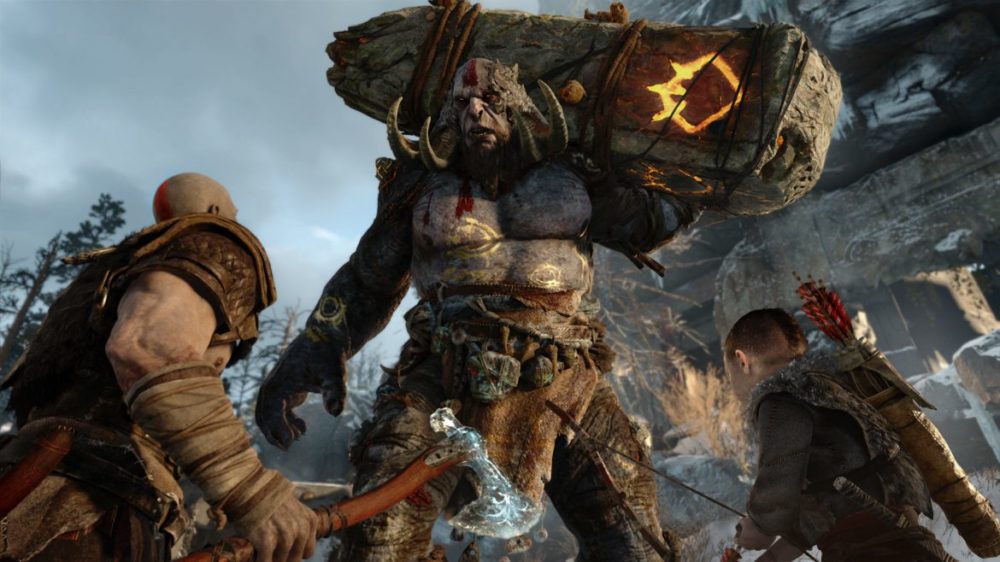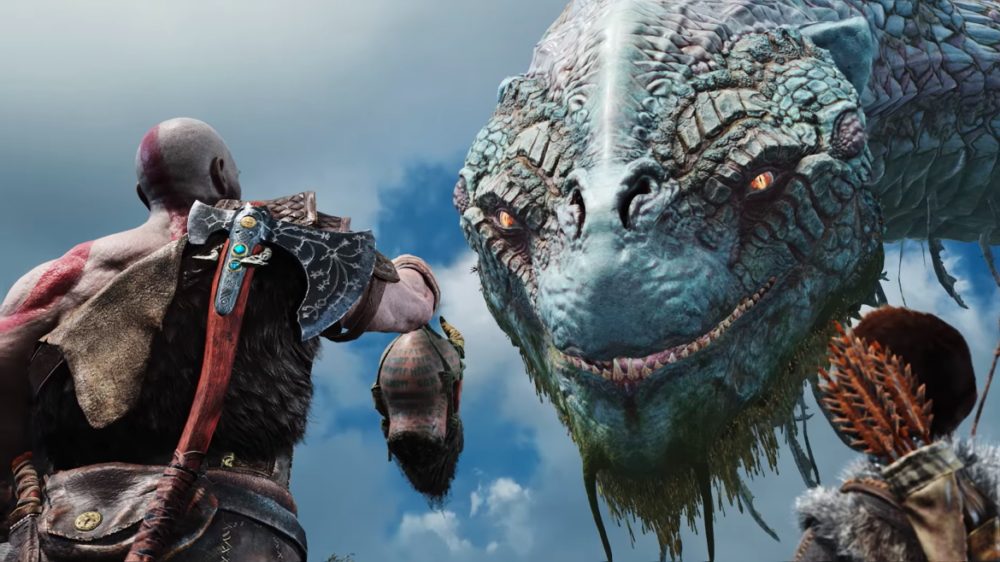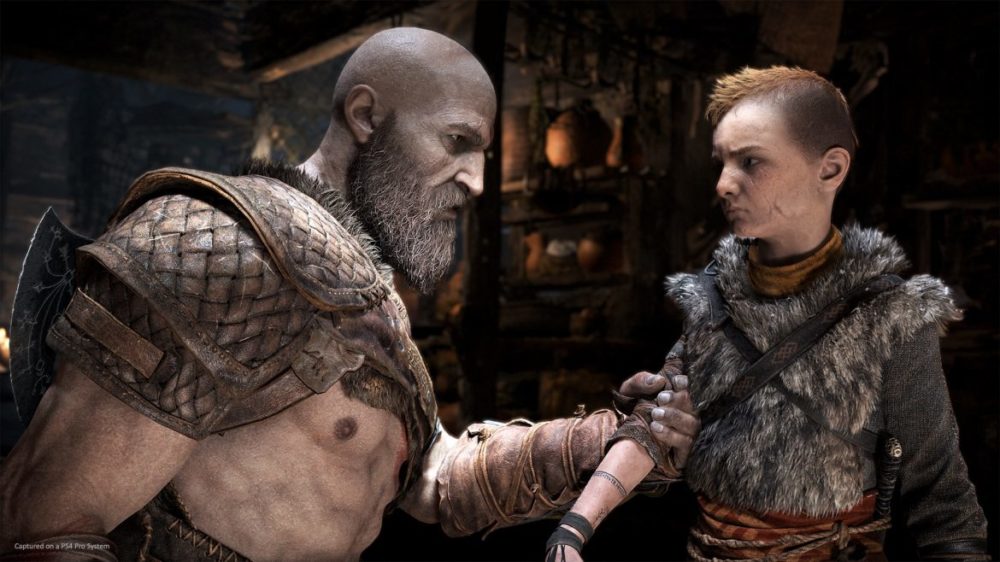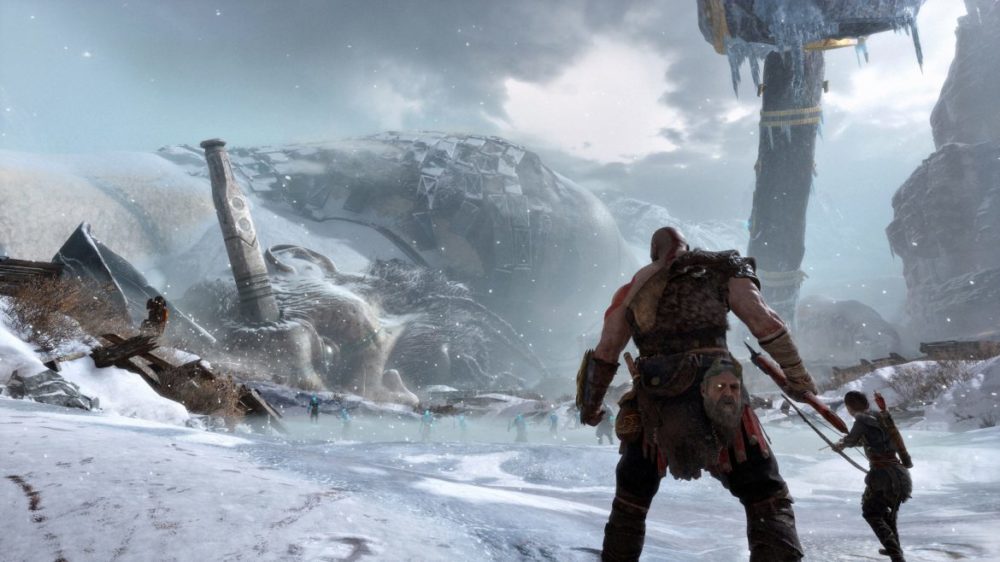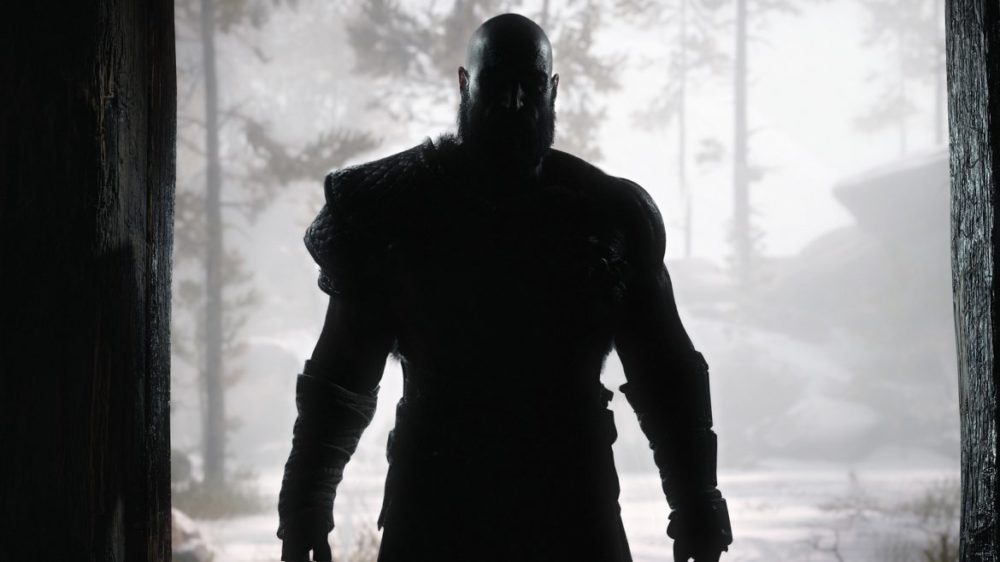TL;DR
God of War (2018) is a bold reinvention of the iconic franchise, trading frenetic Greek combat for a more intimate, narrative-driven Norse adventure. Featuring a grizzled, bearded Kratos and his son Atreus, the game boasts stunning audiovisuals and a shift to a close, over-the-shoulder perspective. While the core combat mechanics are updated with strategic depth and the Leviathan Axe, the father-son dynamic is the heart of this mature, violent, and emotionally resonant experience. It’s a significant departure that blends elements from modern action-adventure hits, creating a compelling, albeit potentially divisive, new chapter. Discover if this radical reimagining lives up to the legacy – read the full review!
Note! This review may contain minor spoilers for the original God of War games.
The game series God of War has been a landmark achievement for Sony’s Playstation. Its success spawned numerous imitations from competing studios, with varying degrees of fidelity to the original concept. Many will recall their initial encounter with Kratos on the Playstation 2 in 2005: a frenetic action-adventure title featuring a Spartan warrior consumed by a violent rage in ancient Greece, determined to avenge himself upon the god of war, Ares. Its unique blend of stylish presentation and extreme violence, coupled with Kratos’s primal fury, established a new, iconic game hero (or anti-hero, considering the tragic circumstances of his wife’s murder in a blind rage). The second installment was also impressive (and was the inaugural piece we published on senses, back in the day!), while the third culminated in a technically superior experience on the Playstation 3, where Kratos systematically dismantled Olympus and eliminated the Greek pantheon (who could forget the scene involving Apollo’s head?). Beyond the main trilogy, three interquels were released for smaller formats, later remastered in HD for PS3 (refer to this article for a comprehensive overview).
Following the release of the third game in 2010, the franchise faced a turning point. The narrative arc concerning the Olympian gods had seemingly reached its conclusion. In 2013, God of War – Ascension was released, a prequel set between the first and second games (shortly after Kratos murdered his wife) and focusing on multiplayer, including a co-op mode. This installment highlighted the limitations of the established concept from 2005. The core mechanics remained largely unchanged: the fixed camera, button-mashing combat, the upgrade system, and a story constrained to prequel settings. After this comparatively lukewarm reception, Kratos retreated into silence, though Santa Monica Studios hinted at a continuation. As the PS4 was launched in 2013, rumors of a “God of War 4” began to circulate, eventually confirmed in 2016. The question remained: what new direction would they take on Sony’s powerful new platform? Five years later, as the PS4 nears the end of its lifecycle, we have the answer.
God of War 2018 is, somewhat confusingly, simply titled God of War, mirroring the original. Given the limited availability of PS2 games, the risk of purchasing the “wrong version” is minimal, but the title choice signifies a conscious effort to “start over.” This reboot represents a significant departure from previous entries, offering both a familiar experience and a distinctly different gameplay style. The results are mixed.
The five-year development cycle has clearly yielded impressive results. Santa Monica Studios delivers an audiovisual experience that rivals Naughty Dog’s best PS4 titles in terms of production value. The graphics and level of detail are particularly striking on the PS4 Pro. The game offers a choice between a “visuals” mode, utilizing checkerboarding to achieve 2160p (with subtle improvements on a 4K TV), and a “performance” mode, targeting an unlocked 60fps, which we prefer (see our analysis of Witcher 3 on Xbox One X for the reasoning). While the HDR implementation may not be as impactful as in Horizon Zero Dawn, the camera work is exceptional, comparable to top-tier Hollywood productions. The perspective has shifted entirely, from a third-person view with a fixed camera to a close, over-the-shoulder angle with a semi-free camera (allowing limited rotation). This altered perspective provides a more intimate experience and largely eliminates platforming elements. Kratos has abandoned his signature chained blades (from which he was freed at the conclusion of the third game), relocated from Greece to the Nordic realms (presumably representing Norway or Iceland as Midgard), and the action unfolds from his direct perspective, reminiscent of Gears of War, emphasizing advanced button combinations and precise timing over frantic button mashing.
Kratos’s primary weapon is now the Leviathan Axe, a magical weapon that can be thrown and used in melee combat, and then magically recalled to his hand, akin to Thor’s hammer. We encounter an aging Kratos, sporting a distinguished beard, alongside his son, whom he must mentor after the passing of the boy’s mother (Kratos’s second wife). Burdened by his past, Kratos is forced to flee with Atreus after an encounter with a Nordic god aware of his previous exploits. They become exiles in a foreign land. The narrative echoes themes explored in Logan.
The game’s tone has been modernized and significantly altered. Kratos is now more stoic, melancholic, and reserved than overtly aggressive, making Geralt of Rivia in Witcher 3 seem almost jovial by comparison. The focus shifts to the son, who must learn to control his anger and navigate the brutal mythological world. The series’ mature themes persist: God of War remains exceptionally violent, bloody, and often cruel. The developers aim to forge emotional connections, much like in The Last of Us, emphasizing human relationships and emotional stakes within a fantastical yet grounded setting.
Many familiar elements remain. Kratos can upgrade his skills and weapons, collect green crystals to replenish health, and open chests containing bonuses (as well as barrels, vases, and other containers). Enemies are encountered frequently, ranging from standard “axe fodder” to mid-level and boss encounters. The map is more open than in previous installments, but not to the extent of allowing unrestricted exploration. God of War 2018 represents a complex fusion of established mechanics and new innovations.
For the most part, the new direction proves successful. Combat has undergone significant changes: while parrying and timed attacks remain fundamental, players must adapt to the new perspective and employ more strategic approaches. Encounters can become overwhelming when facing multiple enemy types, each requiring a unique strategy, and battles can sometimes feel chaotic and difficult to manage. The difficulty level can be lowered to the point where the game becomes a largely interactive cinematic experience, but doing so diminishes a significant portion of the gameplay. In many respects, this iteration diverges so significantly from its predecessors that only the core identity of Kratos retains the essence of God of War. Instead, the game blends elements from recent successful action-adventure titles, such as Rise of The Tomb Raider, The Last of Us, Fallen, and others, suggesting it could have been marketed under a completely different title were it not for the presence of Kratos. God of War 2018 surpasses these influences in terms of graphics and orchestrated soundtrack (composed by Bear McCreary, known for his work on Walking Dead and Battlestar Galactica).
The dynamic between Kratos and Atreus (perhaps a reference to Atreyu from The NeverEnding Story?) serves as the linchpin of the experience, both narratively and mechanically. Atreus’s progression from a vulnerable child to a young warrior is punctuated by trials and pivotal moments that drive his development. He evolves into a capable sidekick, drawing enemy attention with his bow and interpreting runes (a skill Kratos lacks). This new dynamic introduces a fresh perspective and significantly alters the series’ focus. The puzzle elements even evoke the collaborative gameplay found in Uncharted, facilitated by a computer-controlled partner.
Summary: Assessing God of War has proven both enjoyable and challenging. The game presents a blend of familiar elements alongside significant departures from the established formula. The production quality is exceptional, likely establishing it as another system-selling title for Sony, further bolstering the PS4’s impressive library. Despite the Xbox One X possessing a performance advantage on paper, the PS4, in the hands of skilled developers, demonstrates its capabilities. Unique titles, such as this, consistently outweigh raw performance. For fans of Naughty Dog seeking a compelling action-adventure experience, the God of War reboot represents a highly compelling choice. However, it remains to be seen whether long-time God of War enthusiasts, of which there are millions, will fully embrace this reimagining of Kratos. While most likely will, the potential for criticism and backlash remains, given the extent of the changes implemented by Santa Monica. Imagine Quentin Tarantino directing a God of War adaptation, masterfully borrowing elements to create a unique yet familiar mosaic. Considering the stagnation evident in God of War: Ascension, which suggested a dead end for both gameplay mechanics and narrative, the question arises: could this transformation have been avoided?
Therefore, we readily welcome Kratos and Atreus and anticipate a new series of God of War games featuring them in leading roles (envisioning the potential of new mythologies and a growing Atreus eventually wielding the Leviathan Axe). As the saying goes, “Everything that is not development, is winding down.” We commend the evolution of God of War, acknowledging that while it may not be flawless, we are eager to follow Kratos’s journey for a few more years before the Spartan warrior finally finds his rest.


